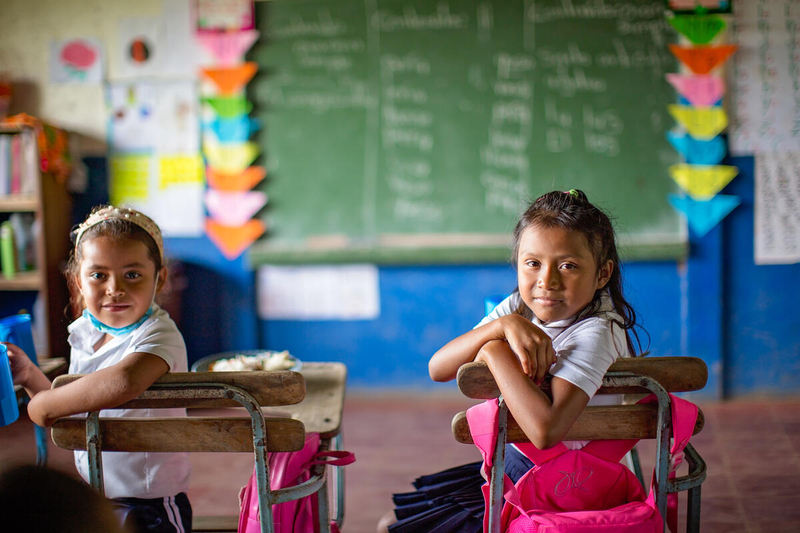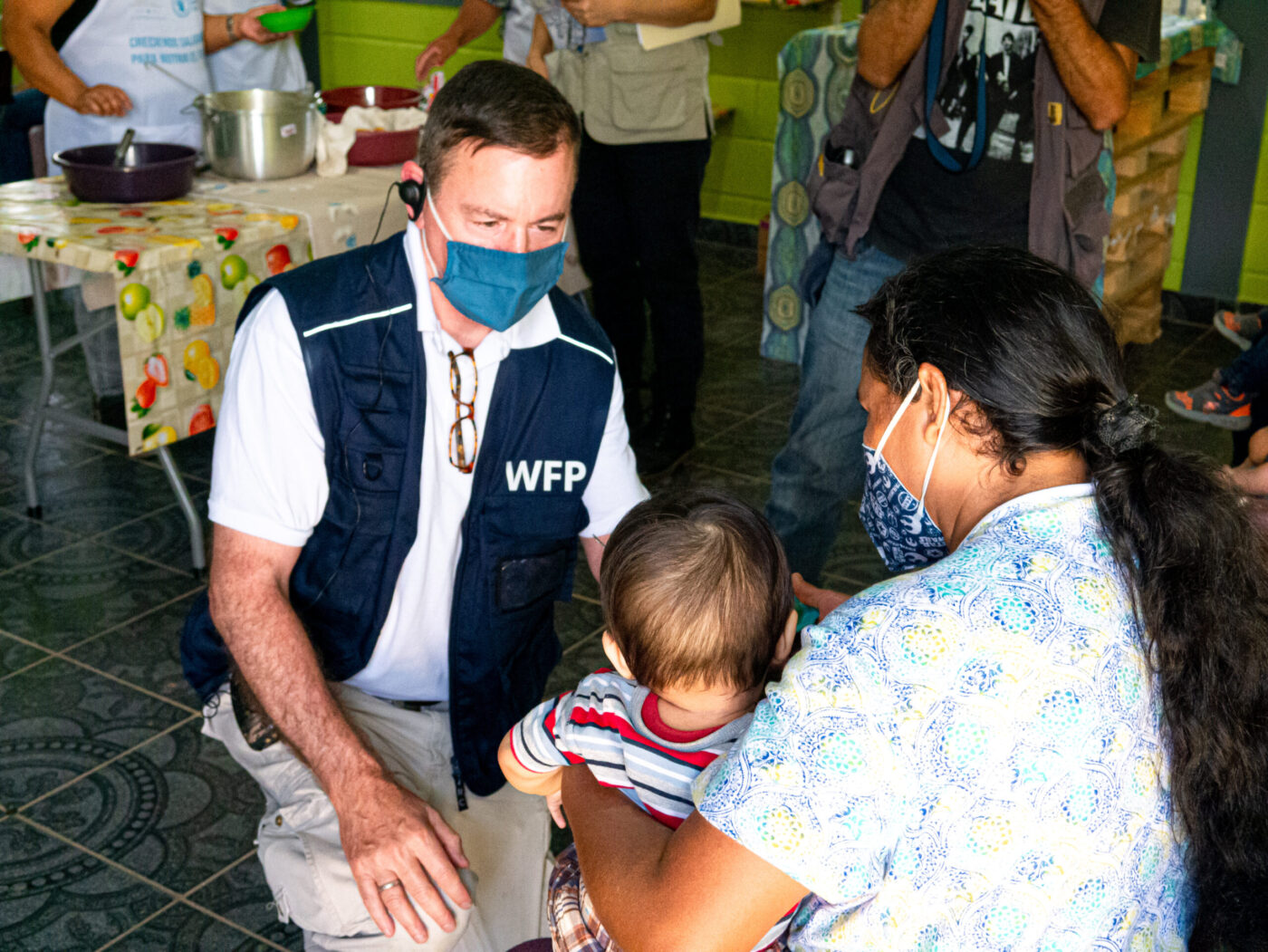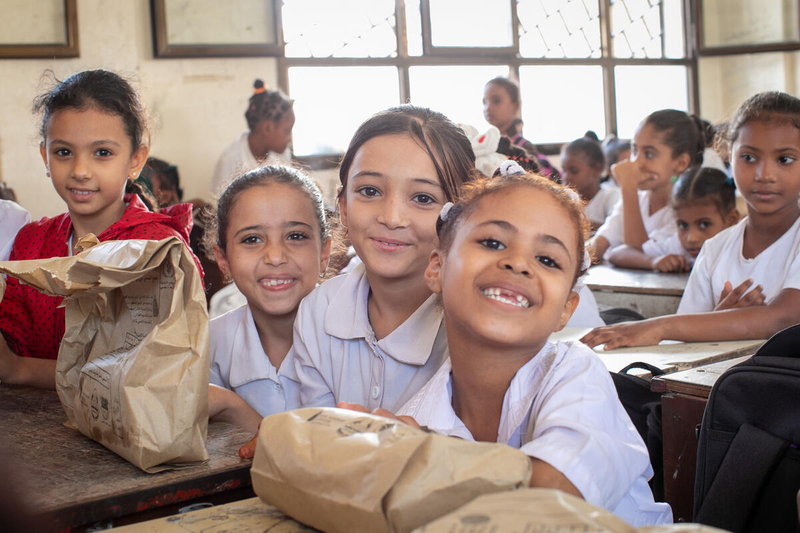What’s in a School Meal? Q&A With Our President Barron Segar on the Importance of Education and Food for Children Around the World

Food and education. Both are basic human rights that offer the world’s youth a ladder to climb out of poverty and build sustainable, inclusive and healthy futures. Both are necessities the United Nations World Food Programme (WFP) believes every child should have equal access to.
For International Day of Education, we sat down with our President and CEO Barron Segar to get an inside look at the importance of school meals and how the world’s largest humanitarian organization is showing up for millions of schoolchildren every day.
Q: What is the intersection of food and education, and how does the United Nations World Food Programme (WFP) fit into that relationship?
A: Many people may not know this, but the U.N. World Food Programme is the largest provider of school meals. Food and education are linked. One cannot go without the other.
A daily meal or snack serves as a very, very strong incentive for families to keep sending their children to school. Imagine you and I being in school and not having anything to eat all day long. I cannot imagine how hard it would be to concentrate, to study, to get anything done. By providing those meals for kids, we see around a 9 percent increase in enrollment.

When Hurricanes Eta and Iota hit Nicaragua in 2020, school buildings were destroyed and kitchens that once delivered a steady stream of school meals were reduced to rubble. Today, in the mountainous area of Jinotega, Nicaragua, WFP supplies a few schools with beans, corn and rice from local producers. Parent volunteers then prepare meals for the schoolchildren at home.
School meals also help children in cases of emergencies. When a hurricane or an earthquake hits, schools are destroyed and kids are kept out of school. The U.N. World Food Programme is there making sure that children get a meal every single day.
Just $50 can provide school meals to a child for an entire year. That is pretty extraordinary.
We know that a hungry child cannot learn, a hungry child cannot grow, and a hungry child cannot reach their full potential. It is our responsibility to make sure that over 15 million schoolchildren, every single year, have a daily meal so that they can stay in school. We also know that children are held back when there is no food. And typically, it is young girls that are held back while the boys go to school.
Q: Can you tell us about your experience of going to the field and seeing U.N. World Food Programme school feeding programs in action?
A: I had the opportunity to visit Honduras and Guatemala and was very honored to talk to a number of the individuals who are enrolled in our school feeding program. It was evident to me how important school feeding is to kids. Several mothers and fathers thanked the U.N. World Food Programme for providing, in many cases, what is the only meal every single day for their child.
I saw high-protein biscuits that were being distributed. The parents were being trained around what a healthy meal looked like, and how to cook a healthy meal, not only at home, but also for children that were in school.
Seeing all that, I thought to myself, “has there ever been a time in my life when I had been hungry when I was in school? Was I able to concentrate? Was I able to reach my full potential?” Of course, the answer is no. We need to maintain a focus, a commitment to these children to make sure that nobody goes hungry.

“I met with mothers while they picked up supplies like cooking oil, corn, beans, rice and fortified rice,” said Segar of his trip to Honduras and Guatemala.
Q: In the wake of COVID-19, how has access to education shifted for populations served and how has the U.N. World Food Programme continued to reach those most vulnerable to hunger?
A: COVID-19 has had a devastating effect on the world. It has had a devastating effect on the poorest of the poor, as most pandemics and crises do. At the beginning of 2020, half of all schoolchildren on the planet had to rely on school feeding programs. In many cases, this was their only meal for an entire day. Pandemic lockdowns closed schools in 199 countries, depriving some 377 million children from access to school feeding programs.

In Yemen, the U.N. World Food Programme is distributing fresh meals to children in low-income neighborhoods. Each meal consists of vegetables, fruit, and a sandwich with freshly cooked beans or cheese so children have the nutrition they need to thrive in and out of the classroom.
But the U.N. World Food Programme is there, making sure that kids in and out of school have a meal and providing food for families to take home. I’m so proud that the U.N. World Food Programme also helped build a coalition for school meals, working with a variety of small and large partners to make nutritious school meals available to all children and families who need it.
I’ll close by saying that we have a lot of people depending on us. Millions of the most vulnerable women and men around the world are depending on the U.N. World Food Programme, on you and on me, to make sure that their child has a meal when they go to school to reach their full potential and to thrive.




